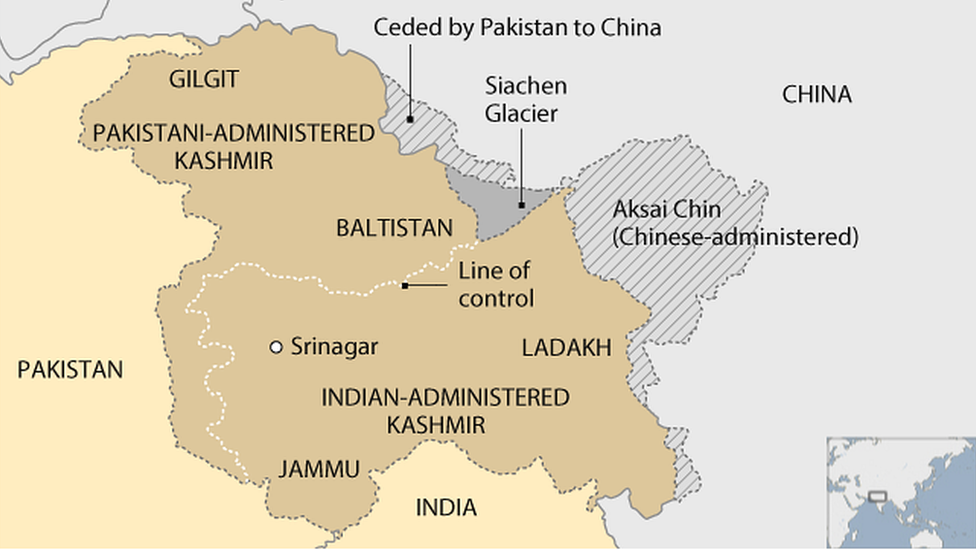India Kashmir strike: The view from Pakistan
- Published
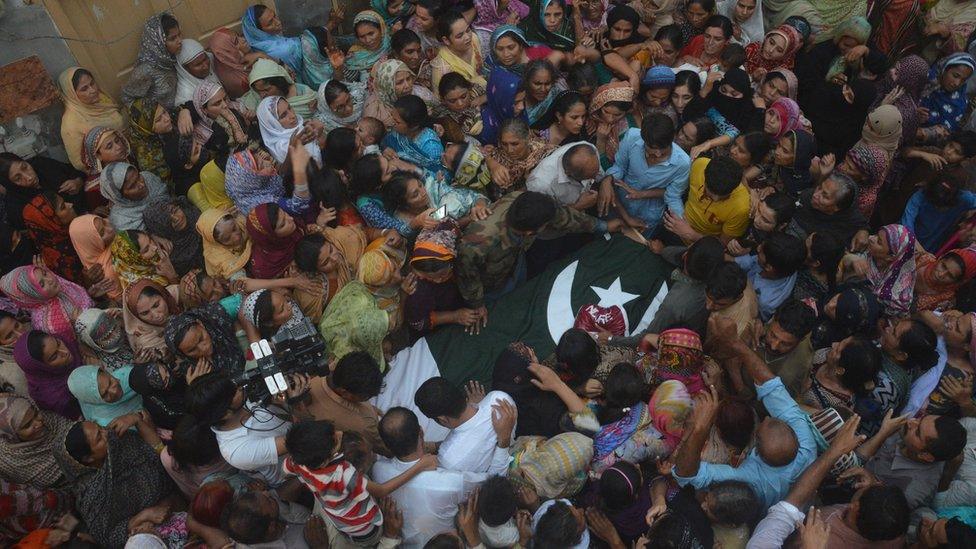
Two Pakistani soldiers were allegedly killed by Indian firing
"'Surgical' farce blows up in India's face", reads the top headline of Friday morning's Express Tribune newspaper.
The language is no doubt typical of an increasingly partisan media in India and Pakistan these days, but many believe there is a ring of truth to it.
India on Thursday announced it had carried out "surgical strikes" on militants' "launching pads" on the Pakistani side of the disputed region of Kashmir, inflicting "significant casualties".
Viewpoint: Border 'strikes' will not trigger war
Military officials told Indian media, external that their troops had crossed into the Pakistan-controlled side of Kashmir and carried out strikes.
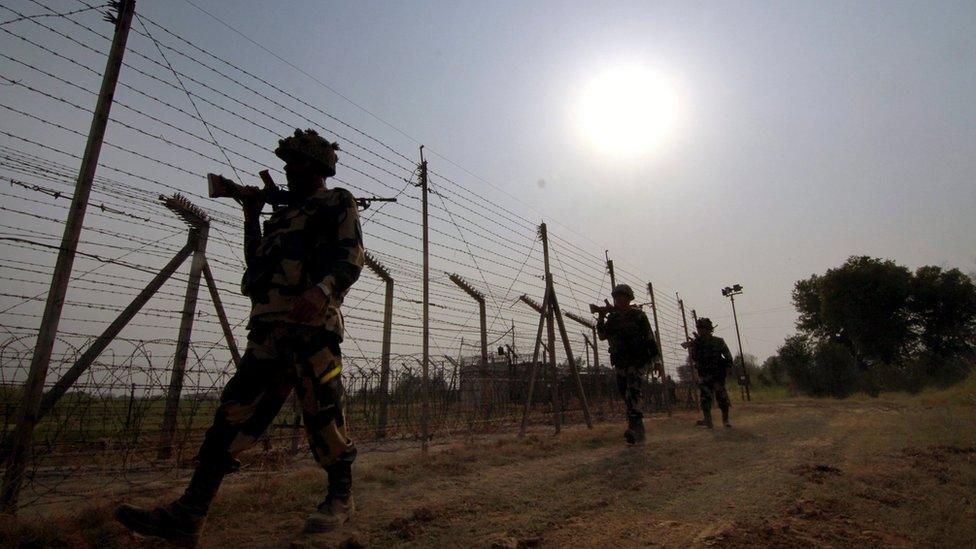
Much of the disputed border is fenced off
The announcement sent alarm bells ringing not only through the two nuclear-armed neighbours, but also the rest of the world.
The so-called "surgical strikes" on the Pakistan-controlled side of Kashmir seemed to take the conflict to an unprecedented level - since no cross-border air or ground action has taken place in the region since the 1999 Kargil war.
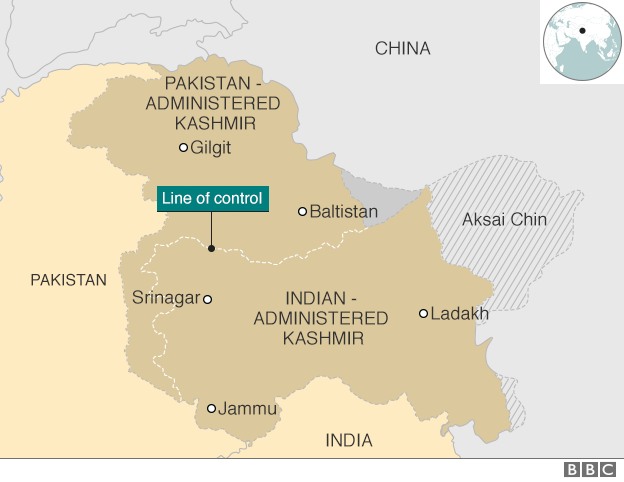
But what actually happened?
Pakistan's military has rubbished India's claim, saying all that happened was the usual cross-border fire involving mortars and small arms in which two Pakistani soldiers were killed.
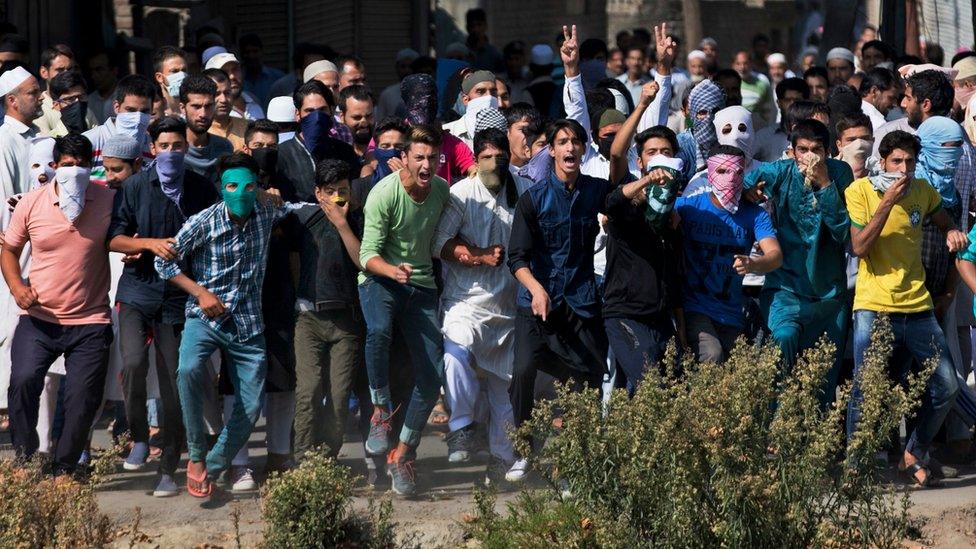
In India-controlled Kashmir, some Kashmiri Muslim protesters shouted slogans in support of Pakistan
Given that the Pakistani authorities have an interest in controlling the flow of "unwanted" information coming out of the region, the BBC sought to verify details by speaking to local contacts in areas said to have been hit by the conflict.
All the areas were along the Line of Control (LoC) dividing the Indian and Pakistani controlled sides of Kashmir.
A police officer in the Poonch region told the BBC's Aurangzeb Jarral that Indian artillery targeted some Pakistani military posts across the Buttal region, and two Pakistani soldiers were killed.
In the Bhimber, Leepa and Neelum valley regions, several eyewitnesses reported cross-border shelling - but, crucially, none said they saw any aerial or ground incursions by Indian troops.

Read more:

That is not to say people weren't worried. Of all the affected areas, Neelum valley was the most tense.
It is a crescent shaped, thin, long valley hemmed in by mountains on both sides - and nearly all of it is exposed to potential firing from the Indian side.
The local administration ordered the schools and markets in some areas to close for the day, and traffic on the main road connecting the valley to the rest of the country was regulated - because most parts of the road lie within striking range of Indian guns.
But the Indian fire did not hit either the road or the villages and towns.
Instead, their fire was mostly directed at the Pakistani posts and some militant camps - especially one at Dodhanyal - where infiltration from the Pakistani side has continued in recent months, locals said.
Similar camps in Leepa valley and in the Samahni area of Bhimber were also hit.
But some of the camps were unmanned at the time of firing.
Indian soldier arrested
The only incident of border incursion by Indians was reported by locals in Goi area of Tatta Pani in Kotli region, which straddles the LoC, on Thursday afternoon,
It involved a lone Indian soldier who apparently strayed into a Pakistani village and was arrested.
A witness from the area told the BBC a "panicked" Indian soldier entered a house to seek shelter.
The residents of the house informed a Pakistani post nearby who raided the house and captured the soldier. He was wearing Indian army uniform, and was carrying a shoulder bag, locals said.
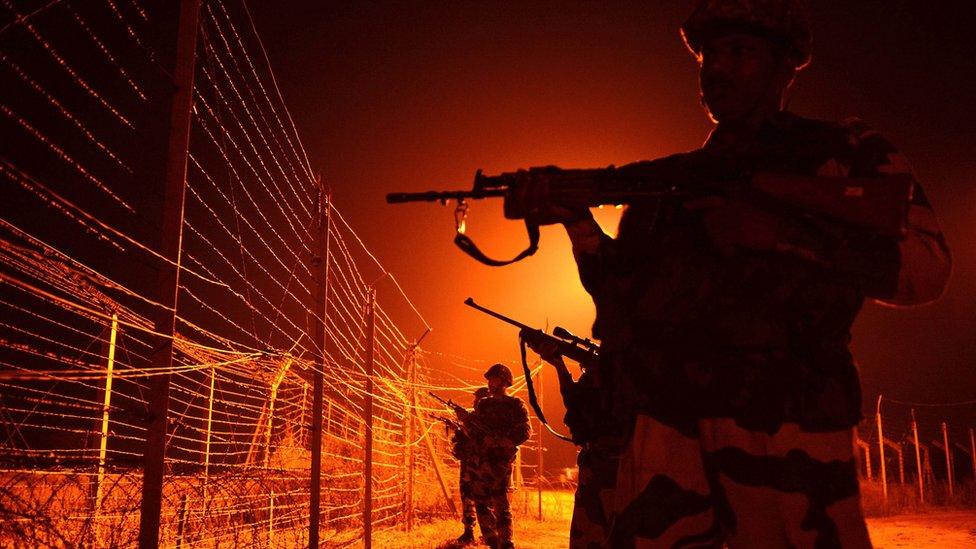
One Indian soldier has reportedly been detained on the Pakistani side
It is not clear why the soldier was in "panic" as locals did not report any border hostilities in the area.
But locals say it is not the first time Indian soldiers have entered the area.
While India has fenced most of the LoC, some border areas across the mountains are not fenced, and residents say Indian soldiers from a nearby post have been using water from the same spring as the local villagers.
Could the conflict escalate?
The view in Pakistan is that Indian PM Narendra Modi came to power on the back of his anti-Pakistan rhetoric. As a result, he is now under pressure from Hindu nationalists among his supporters who are pushing for revenge.
The pressure is further increased due to an extremely competitive media landscape, where outlets vie for ratings by drumming up war hysteria, experts say.
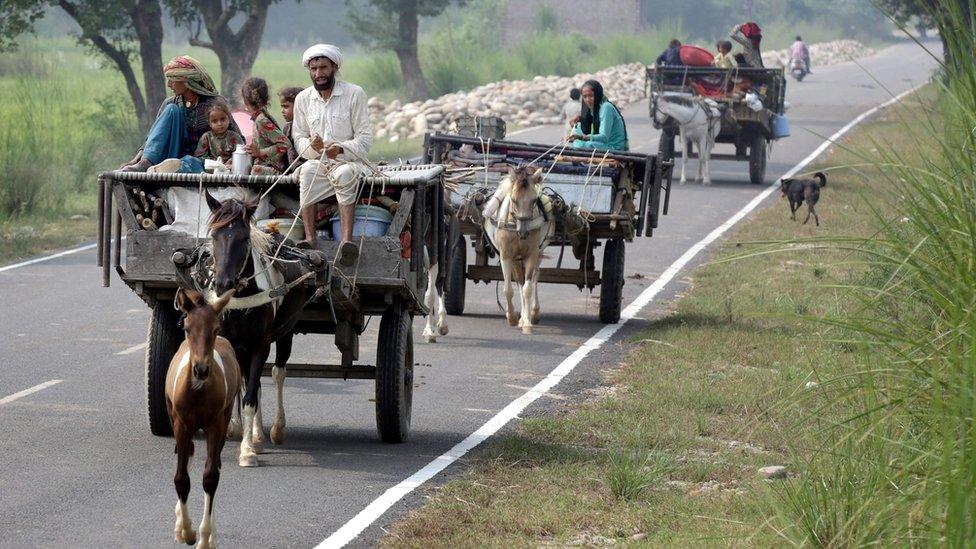
Indian border villagers have evacuated from their homes near the disputed border
Many believe that, since both India and Pakistan have nuclear arsenals, the warmongering is just posturing to pander to Mr Modi's constituency.
However some circles do point out that in the medium term, India may persist in holding Pakistan to account more than it has done in the past.
These analysts expect increased hostilities along the LoC in coming weeks and months, along with aggressive diplomatic moves.
- Published20 September 2016
- Published28 September 2016
- Published19 September 2016
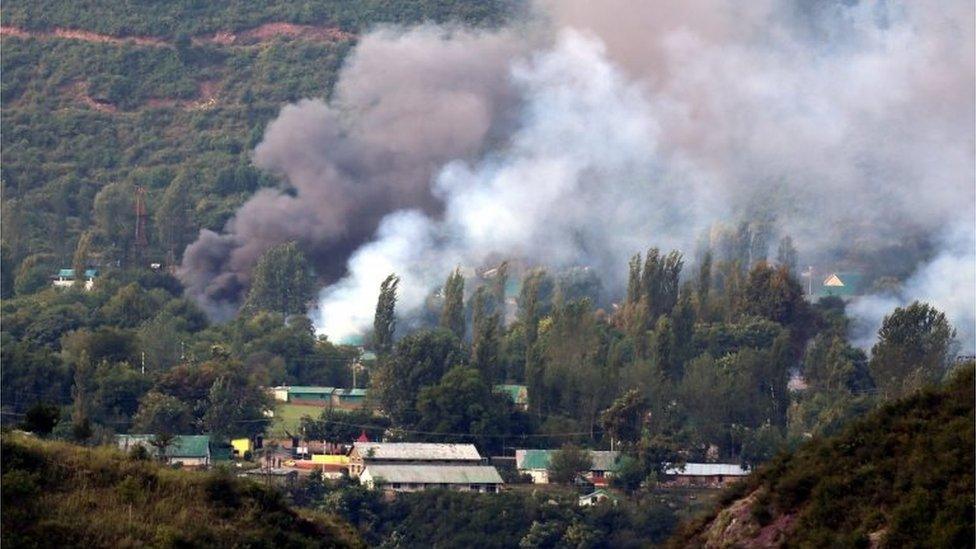
- Published10 March
